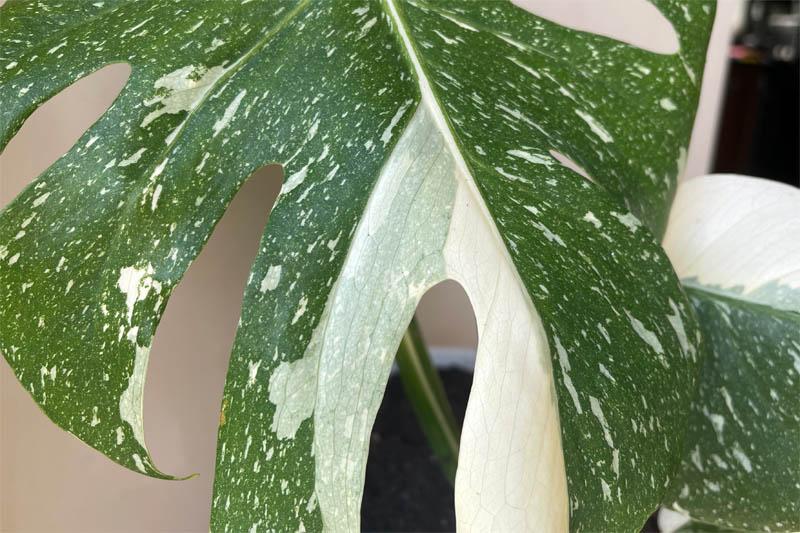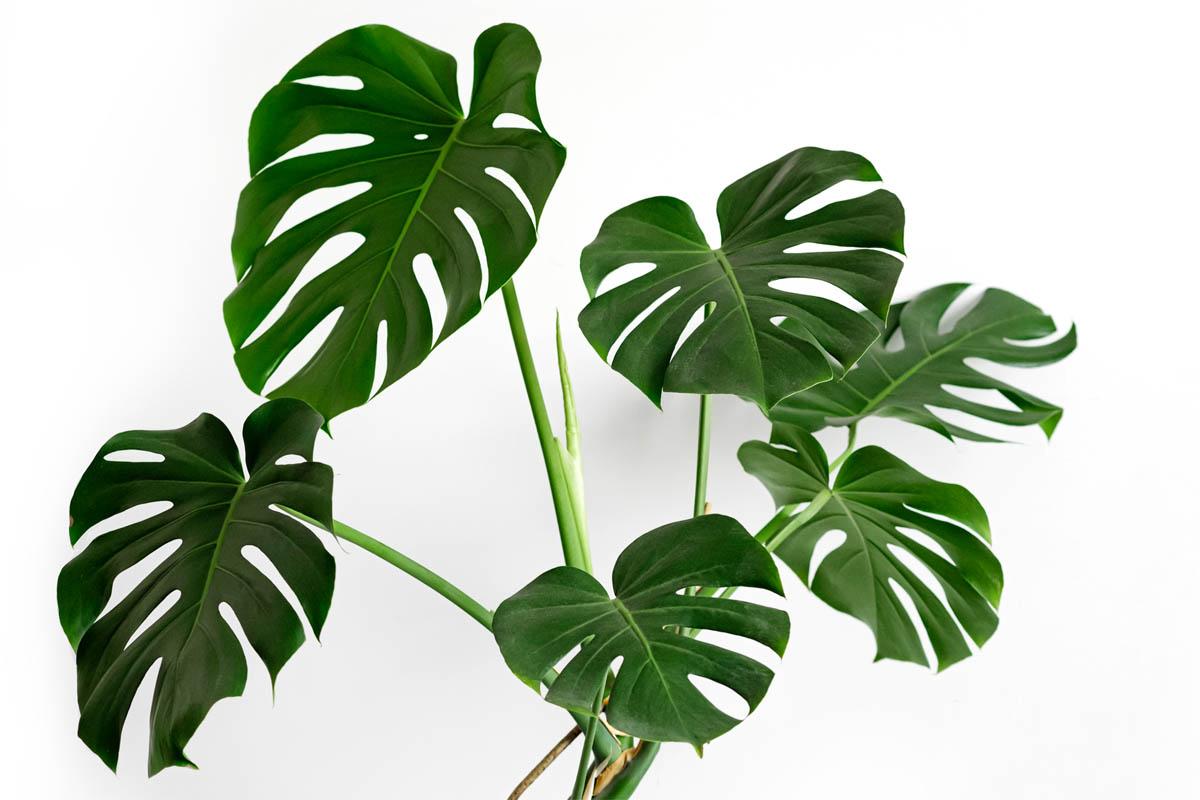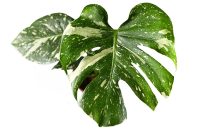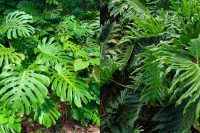Is Swiss cheese plant toxic to dogs?
Swiss cheese plant (Monstera deliciosa) is toxic to dogs. The toxic principle is insoluble calcium oxalate crystals known as raphides produced by specialised cells known as idioblasts. Raphides are embedded in the plant tissue and when the dog chews the plant, needle-sharp needles formed in clusters (raphides) penetrate the oral mucosa causing intense pain, burning and swelling.
What is Swiss cheese plant?
- Family: Araceae
- Botanical name: Monstera deliciosa
- Common names: Swiss cheese plant, Cheese plant, Mother-in-law, Fruit salad plant, Ceriman, Hurricane plant, Mexican breadfruit
- Plant type: Climbing evergreen
- Toxicity: Toxic to dogs
- Toxic parts: All
- Severity: Moderate
- Toxic principle: Insoluble calcium oxalate crystals
Monstera spp. is a genus of 45 evergreen vines native to tropical regions of the Americas. Monstera deliciosa (Swiss cheese plant) is the most well-known species popular as a houseplant due to its ease of care and interesting leaves. M. deliciosa leaves start out small, but as the plant grows, increase in size, developing fenestrations (holes) in the leaves which minimise the risk of damage during high winds. At maturity, the leaf of M. deliciosa can reach as large as 80 – 90 cm long and 75 cm wide.
Over the past few years, two variegated cultivars have been developed which have become hugely popular among plant lovers. Monstera deliciosa ‘Albo borsigiana’ and Monstera deliciosa ‘Thai constellation’ are both still relatively rare, expensive, and not commonly found in garden centres. These eye-catching varieties consist of the characteristic green fenestrated leaves, with areas of white or cream.
Related: Can you grow variegated Monstera from seed?

While popular as indoor houseplants, Swiss cheese plants can grow outside in tropical climates but can become invasive if they are planted in the ground.
The name Monstera comes from the Latin word monstrous due to the large leaves produced by M. deliciosa, and deliciosa comes from the word delicious which relates to the fruit produced by M. deliciosa.
Clinical signs
Most cats will stop chewing in response to the bitter taste and acute pain. Symptoms relate to acute oropharyngeal pain from contact with needle-sharp calcium oxalate crystals.
- Oropharyngeal pain
- Drooling
- Pawing at the mouth
- Anorexia (loss of appetite)
- Swelling of the soft tissues
- Difficulty swallowing
- Vomiting
- Diarrhea
- Swelling of the mouth and throat
- Difficulty breathing (rare)
Although the response can look extreme to cat owners, symptoms are rarely life-threatening unless swelling develops, which can lead to breathing difficulty.
First aid
If it is safe to do so, sweep any remaining plant material out of the mouth. Offer the dog a drink of something tasty such as milk to flush the mouth.
Contact your veterinarian or pet poison helpline for advice. If the dog is not displaying clinical signs they may recommend a wait and see approach.
Treatment
Symptomatic dogs should see a veterinarian. The goal of treatment is to prevent further absorption which may involve gastric lavage to flush any remaining plant matter out of the gastrointestinal tract or induce vomiting. Administration of activated charcoal which will bind to any remaining plant matter and prevent further absorption.
Intravenous fluids will be given to dogs experiencing vomiting and/or diarrhea to prevent dehydration and electrolyte derangements.
Dogs who are experiencing difficulty breathing due to swollen airways may be intubated, which involves placing a long plastic tube into the airways to keep them open.
Prognosis
The prognosis for Swiss cheese plant ingestion is good. Most cases of Swiss cheese plant ingestion are mild and self-limiting.
Julia is a writer and landscape consultant from Wollongong with a love of horticulture. She had been an avid gardener for over 30 years, collects rare variegated plants and is a home orchardist. Julia is passionate about learning and sharing her knowledge of plant propagation and plant toxicology. Whether it’s giving advice on landscape projects or sharing tips on growing, Julia enjoys helping people make their gardens flourish.




